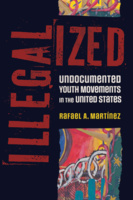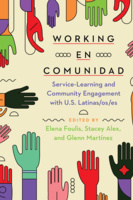The University of Arizona Press is the premier publisher of academic, regional, and literary works in the state of Arizona. They disseminate ideas and knowledge of lasting value that enrich understanding, inspire curiosity, and enlighten readers. They advance the University of Arizona’s mission by connecting scholarship and creative expression to readers worldwide.
Plants for Desperate Times
The Diversity of Life-Saving Famine Foods
Plants for Desperate Times is an introduction to the foods that have saved millions of lives during lethal food shortages. While not a field guide, it addresses questions about what famine foods are and why they are important.
Cookstove Chronicles
Social Life of a Women’s Technology in India
Cookstove Chronicles examines India’s handcrafted, wood-burning cooking stoves, the rural women who use them, and outsiders who try to improve them by engineering a range of “clean” cooking devices. Khandelwal adopts a transnational feminist, anthropological, and STS perspective to reimagine the humble mud stove as both villain and hero of this story and to suggest pathways for collaboration across radical disciplinary divides.
Celluloid Pueblo
Western Ways Films and the Invention of the Postwar Southwest
Landscapes of Movement and Predation
Perspectives from Archaeology, History, and Anthropology
Landscapes of Movement and Predation is a global study of times and places, in the colonial and precolonial eras, where people were subject to brutality, displacement, and loss of life, liberty, livelihood, and possessions. The book provides a startling new perspective on an aspect of the past that is often overlooked: the role of violence in shaping where, how, and with whom people lived.
Colonial Cataclysms
Climate, Landscape, and Memory in Mexico's Little Ice Age
Colonial Cataclysms explores the human and environmental consequences of the global climate event called the Little Ice Age as it played out in central Mexico during the era of Spanish imperialism. It focuses on the great floods, massive soil erosion, and human adaptations to these cataclysms.
Tourism Geopolitics
Assemblages of Infrastructure, Affect, and Imagination
Tourism Geopolitics offers a unique and timely intervention into the growing significance of tourism in geopolitical life as well as the intrinsically geopolitical nature of the tourism industry.
Illegalized
Undocumented Youth Movements in the United States
Illegalized situates undocumented youth movements’ trajectories in the twenty-first century. It invites readers to explore how undocumented youth activists changed the way immigrant rights are discussed in the United States today.
House of Grace, House of Blood
Poems
An innovative collection of archival poetry, House of Grace, House of Blood weaves images and documents from the 1782 massacre of pacifist Delawares in Gnadenhutten, Ohio into poems that explore contradictions: settler colonists and Indigenous people; violence and reconciliation; body and spirit; history and silence. Ultimately, these poems not only reconstruct an important historical event, but they also put pressure on the archive, asking us to question not only what is remembered, but how history is remembered—and who is forgotten from it.
Five Hundred Years of LGBTQIA+ History in Western Nicaragua
This groundbreaking book reframes five hundred years of western Nicaraguan history by giving gender and sexuality the attention they deserve. González-Rivera decenters nationalist narratives of triumphant mestizaje and argues that western Nicaragua’s LGBTQIA+ history is a profoundly Indigenous one.
Reconnaissance in Sonora
Charles D. Poston's 1854 Exploration of Mexico and the Gadsden Purchase
El Fin del Mundo
A Clovis Site in Sonora, Mexico
El Fin del Mundo: A Clovis Site in Sonora, Mexico provides a full report on the site of the first documented Clovis association with gomphotheres in North America.
Frontera Madre(hood)
Brown Mothers Challenging Oppression and Transborder Violence at the U.S.-Mexico Border
Reflecting on the concept of frontera madre(hood) as both a methodological and theoretical framework, this collection embodies the challenges and resiliency of mothering along both sides of the U.S.-Mexico border. More than thirty contributors examine how mothering is shaped by the geopolitics of border zones, which also transcends biological, sociological, or cultural and gendered tropes regarding ideas of motherhood, who can mother, and what mothering personifies.
Working en comunidad
Service-Learning and Community Engagement with U.S. Latinas/os/es
This edited volume showcases examples of service-learning practices and pedagogies for working alongside Latina/o/e communities. The contributors tackle three major themes: ethical approaches to working with Latina/o/e communities within language courses and beyond; preparing Latina/o/e students for working with their own communities in different environments; and ensuring equitable practices and building relationships that are mutually beneficial for students and community. Written by scholars, practitioners, and researchers, the collection’s six chapters offer case studies of how to carry out service-learning work that is culturally informed and provides a guide to help others do the same.
Forging Communities in Colonial Alta California
The influx of Spanish, Russian, and then American colonists into Alta California between 1769 and 1834 challenged both Native and non-Native people to reimagine communities not only in different places and spaces but also in novel forms and practices. The contributors to this volume draw on archaeological and historical archival sources to analyze the generative processes and nature of communities of belonging in the face of rapid demographic change and perceived or enforced difference.
Forging a Sustainable Southwest
The Power of Collaborative Conservation
Forging a Sustainable Southwest is the story of how diverse groups of citizens in the Southwest have worked collaboratively to develop visions for land use that harmonize ecological, economic, cultural, and community needs.
Testimonios of Care
Feminist Latina/x and Chicana/x Perspectives on Caregiving Praxis
The first English-language collection of Latina/x caregiving testimonios, this volume gives voice to diverse Chicana/x and Latina/x caregiving experiences. Bringing together thirteen first-person accounts of how Latinx people deal with serious health conditions as caregivers, these testimonies highlight tragic flaws in the health-care system, how woefully undervalued caregiving is, and how as care recipients and caregivers, they have been harmed by the for-profit health-care system.
Healing Like Our Ancestors
The Nahua Tiçitl, Gender, and Settler Colonialism in Central Mexico, 1535–1660
Offering a provocative new perspective, this book examines sixteenth- and seventeenth-century Nahua healers in Central Mexico and how their practices have been misconstrued and misunderstood in colonial records. Historian Edward Anthony Polanco draws from diverse colonial primary sources, largely in Spanish and Nahuatl (the ancestral Nahua language), to explore how Spanish settlers framed Nahua titiçih (healing specialists), their knowledge, and their practices within a Western complex. Polanco argues for the usage of Indigenous terms when discussing Indigenous concepts, and arms the reader with the Nahuatl words to discuss central Mexican Nahua healing.
Accompaniment with Im/migrant Communities
Engaged Ethnography
This edited volume is a collective conversation between anthropologists, activists, students, im/migrants, and community members about accompaniment—a feminist care-based, decolonial mode of ethnographic engagement. Across the chapters, contributors engage with accompaniment with im/migrant communities in a variety of ways that challenge traditional boundaries between researcher-participant, scholar-activist, and academic-community member to explicitly address issues of power, inequality, and well-being for the communities they work with and alongside.
Silver “Thieves," Tin Barons, and Conquistadors
Small-Scale Mineral Production in Southern Bolivia
This book traces the history of Indigenous mining in southern Bolivia from Inka times to the present using archaeological and historical sources. It argues that small-scale mineral production can only be understood in relation to large-scale mining in the context of colonialism and its aftermath.





















